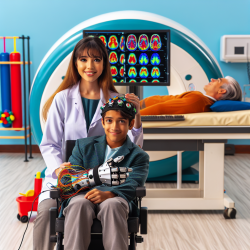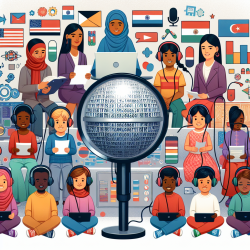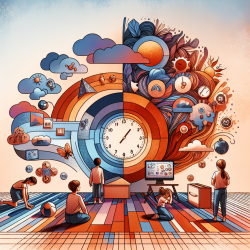As a Special Education Director, staying informed about the latest research is crucial to providing the best support for students with special needs. A recent study titled "Unique deficit in embodied simulation in autism: An fMRI study comparing autism and developmental coordination disorder" by Kilroy et al. (2021) offers valuable insights that can enhance our understanding and treatment approaches for students with Autism Spectrum Disorder (ASD).
This study utilized functional magnetic resonance imaging (fMRI) to investigate how children with ASD and Developmental Coordination Disorder (DCD) differ in their neural responses during tasks involving action observation, imitation, and mentalizing. The findings reveal a unique neural signature in children with ASD, specifically hypoactivity in the inferior frontal gyrus, pars opercularis (IFGop) during action observation. This region is critical for embodied simulation, which is the brain's ability to mirror the actions and experiences of others pre-cognitively.
For practitioners, these findings highlight the importance of targeted interventions that address both motor and social cognitive deficits in children with ASD. Here are some actionable steps based on the research outcomes:
- Incorporate Motor Skill Training: Given the study's finding that motor impairments correlate with embodied simulation deficits, integrating motor skill training into therapy sessions can be beneficial. Activities such as fine motor exercises, coordination tasks, and imitation games can help improve motor skills and, potentially, social cognitive abilities.
- Utilize Technology: Online therapy platforms like TinyEYE can be particularly effective in delivering these interventions. The flexibility and accessibility of online therapy allow for consistent practice, which is essential for skill acquisition and improvement.
- Focus on Imitation and Action Observation: Designing therapy sessions that involve observing and imitating actions can stimulate the IFGop and enhance embodied simulation. Use video modeling and role-playing activities to encourage students to observe and replicate social interactions.
- Promote Mentalizing Skills: Activities that require students to think about others' perspectives and emotions can strengthen the dorsomedial prefrontal cortex, another area highlighted in the study. Storytelling, social stories, and empathy-building exercises can be integrated into therapy to foster these skills.
- Monitor Progress: Regularly assess the motor and social cognitive abilities of students using standardized tools and fMRI studies if possible. This can help in tailoring interventions to meet individual needs and track improvements over time.
By implementing these strategies, practitioners can address the unique neural and behavioral profiles of children with ASD, ultimately enhancing their social and motor skills. Furthermore, this study underscores the need for continued research in this area to refine our understanding and approaches.
To read the original research paper, please follow this link: Unique deficit in embodied simulation in autism: An fMRI study comparing autism and developmental coordination disorder.










